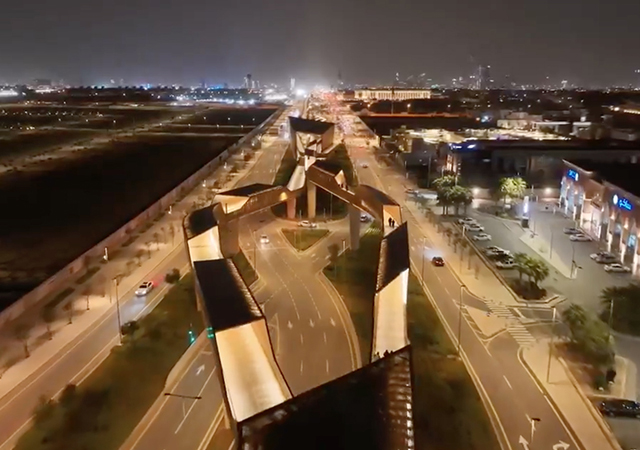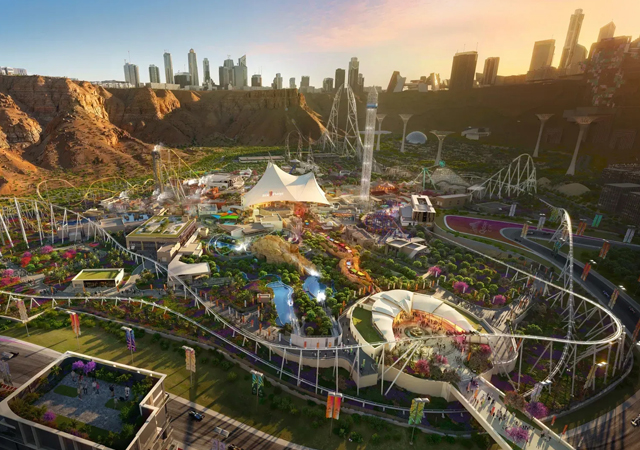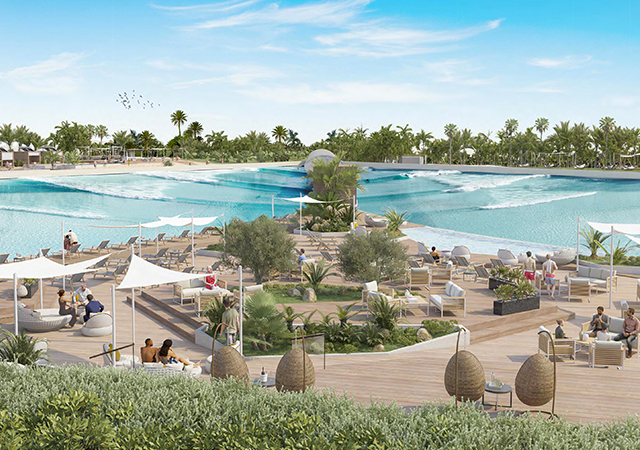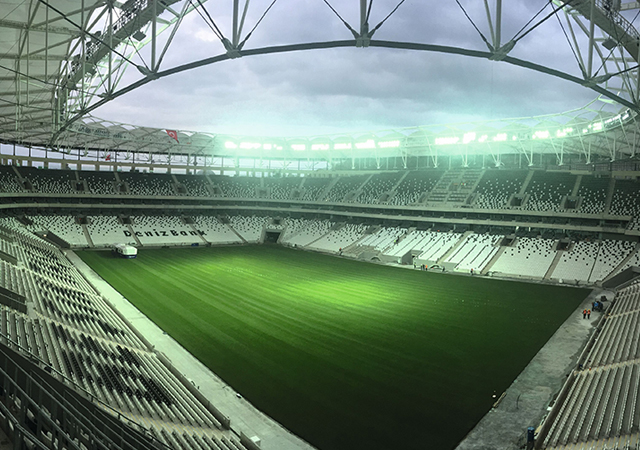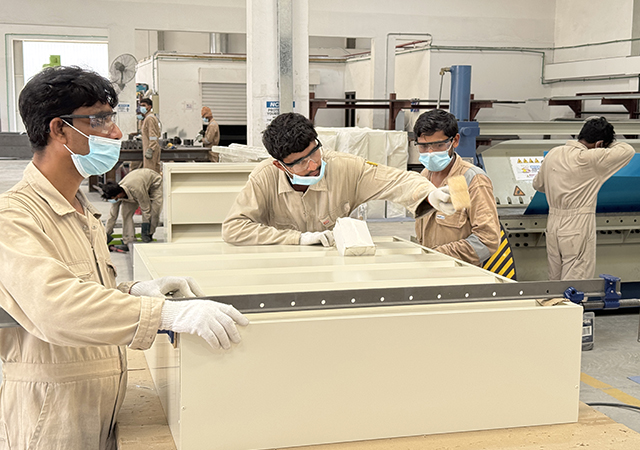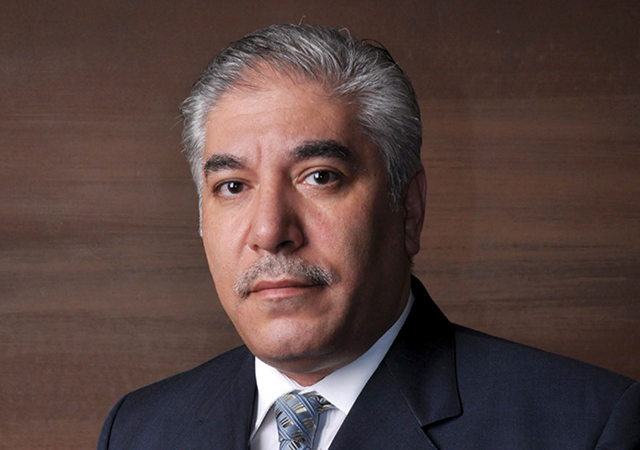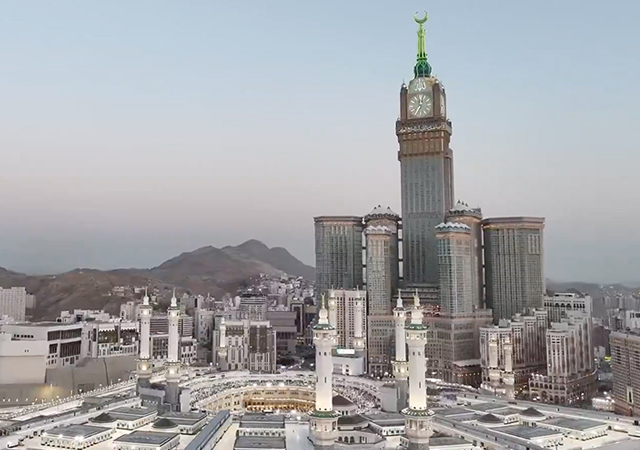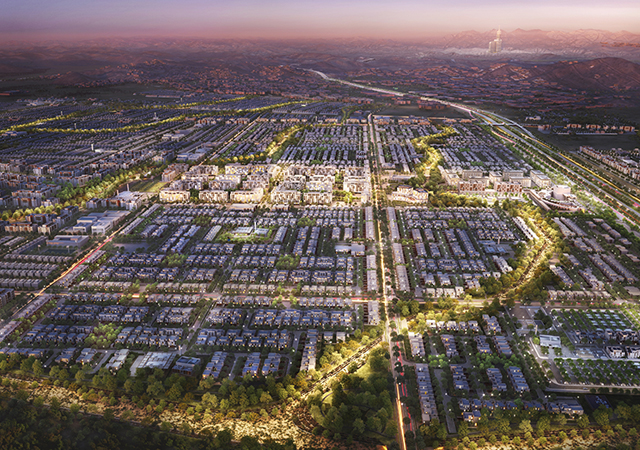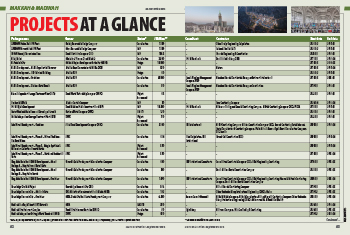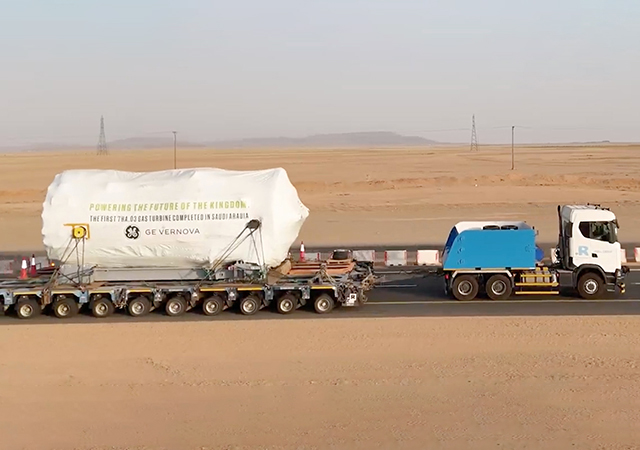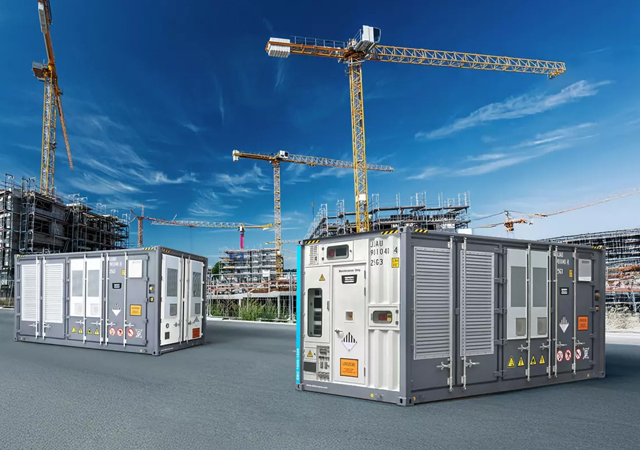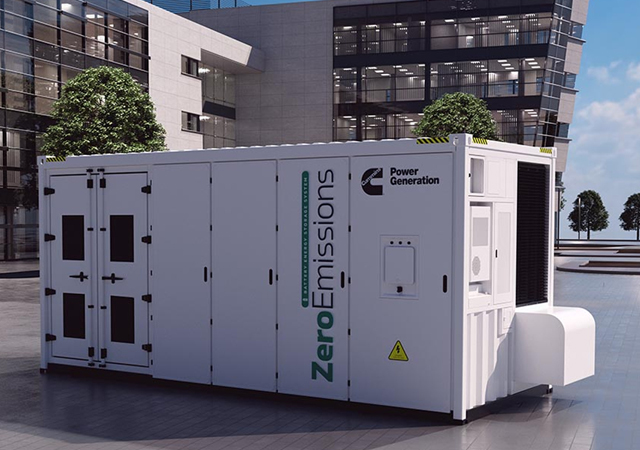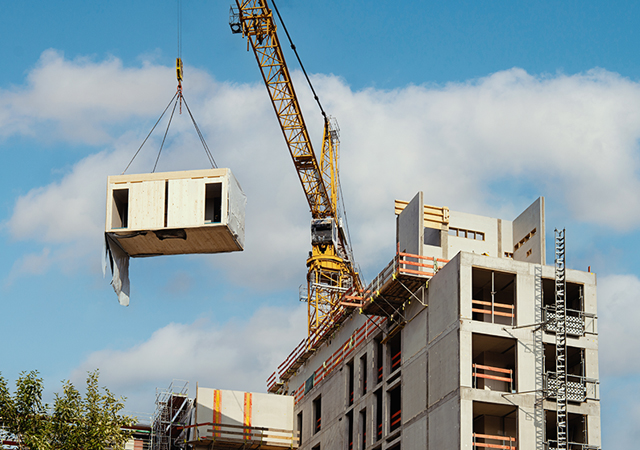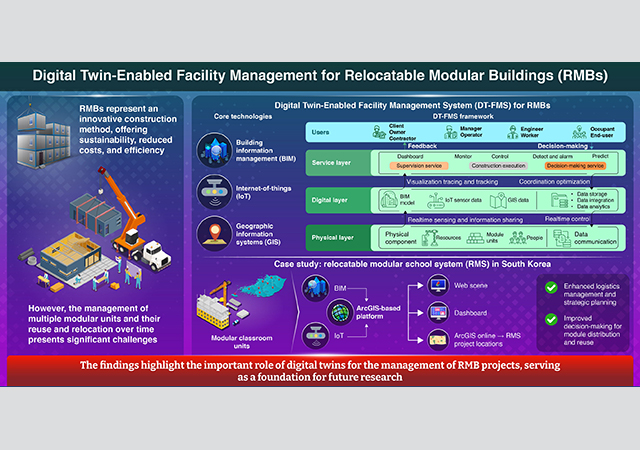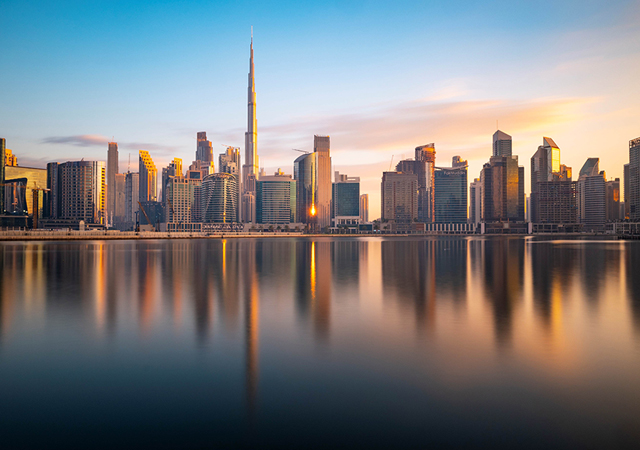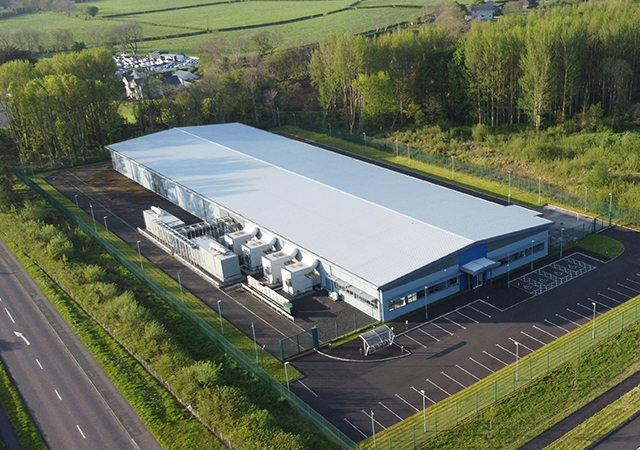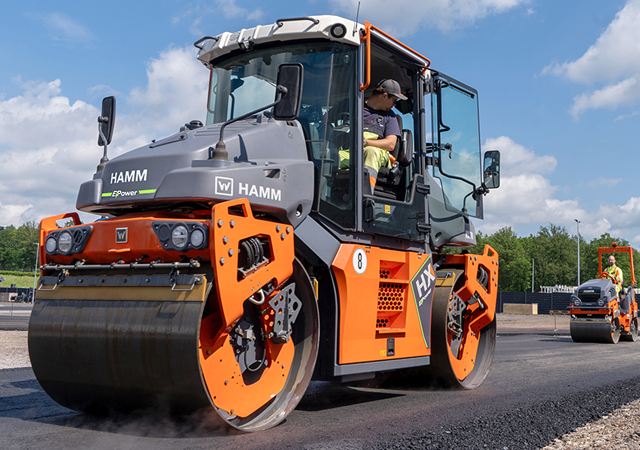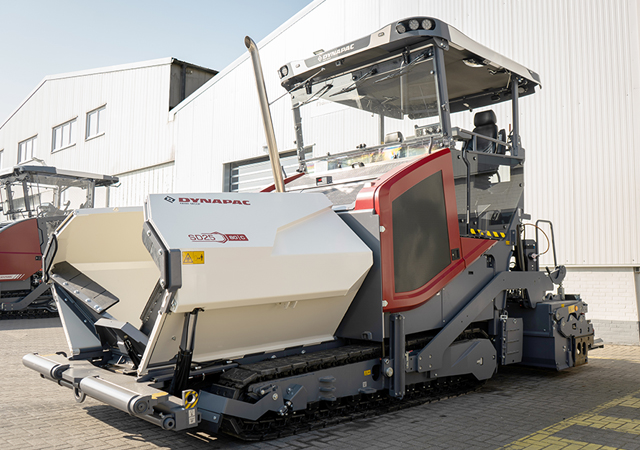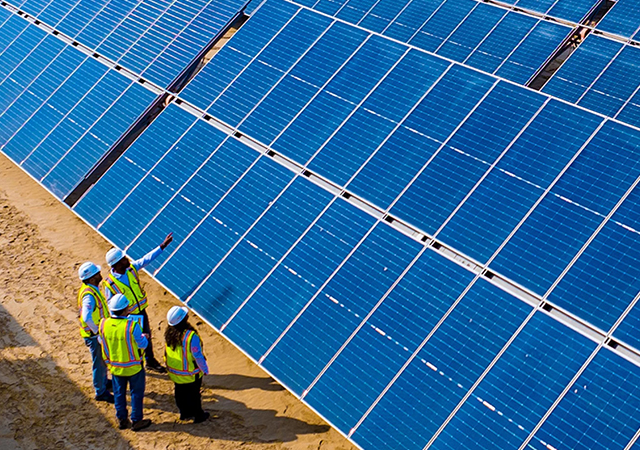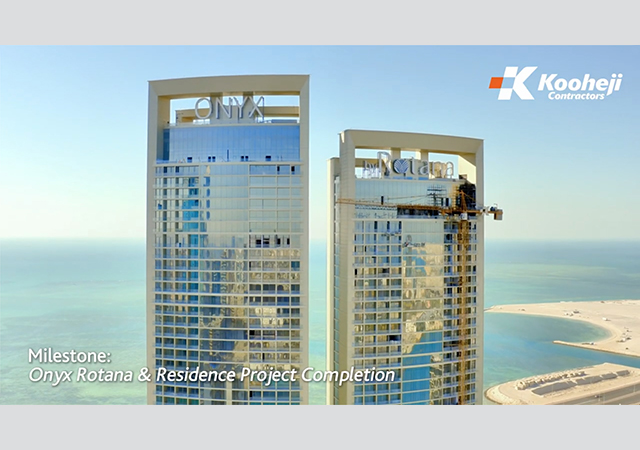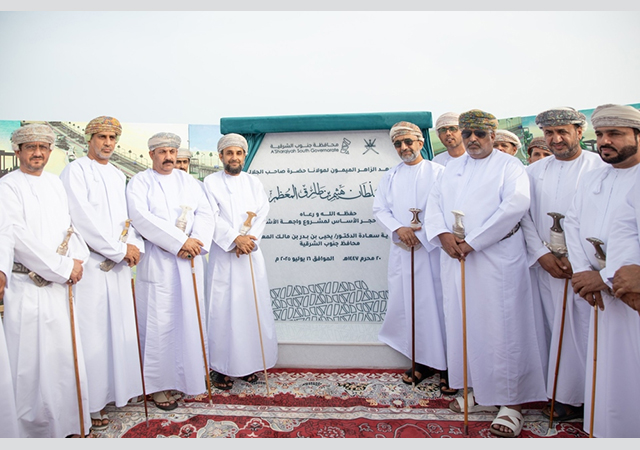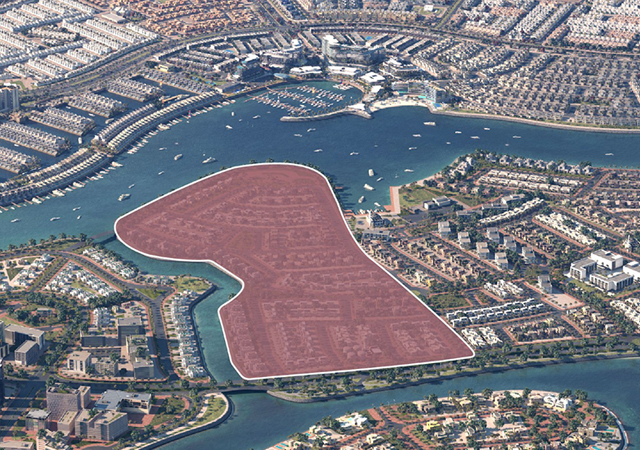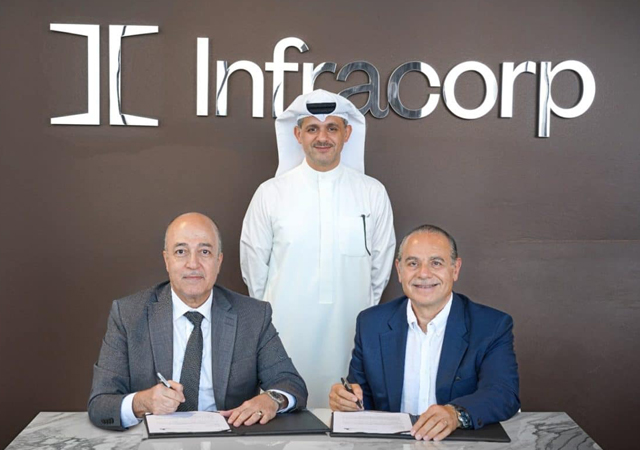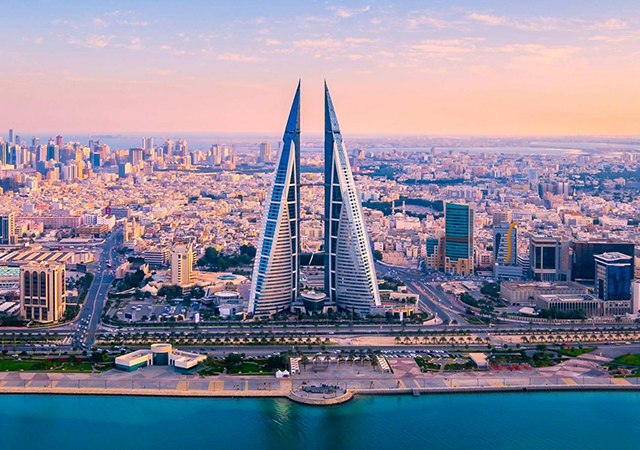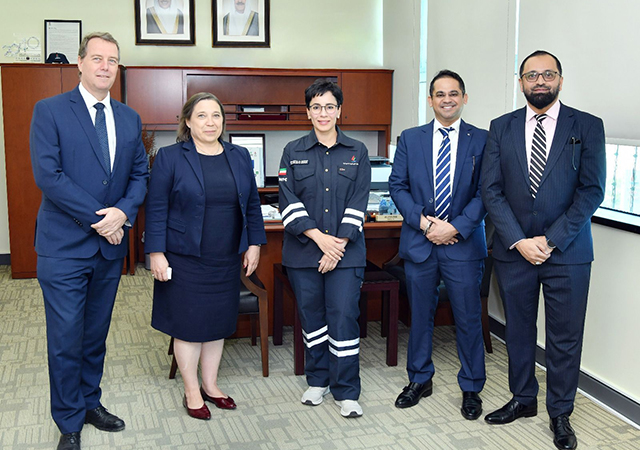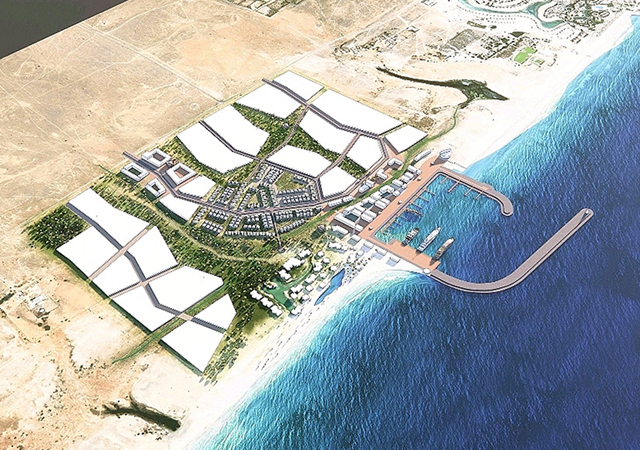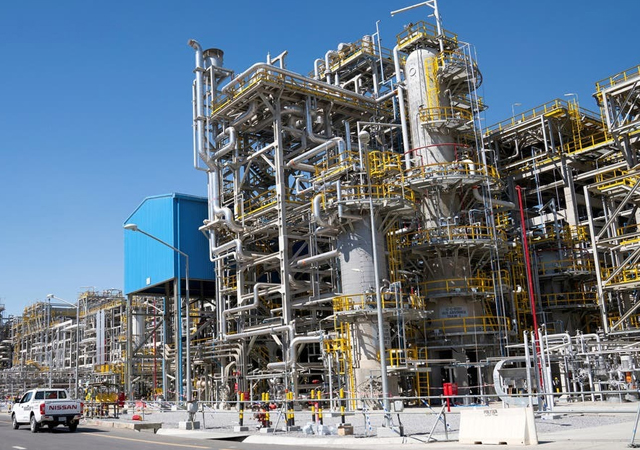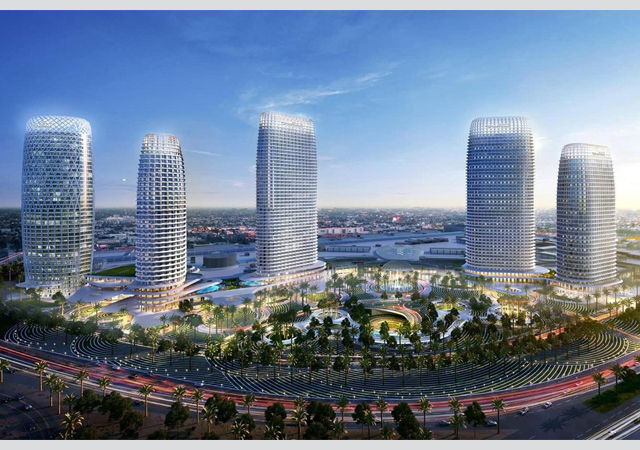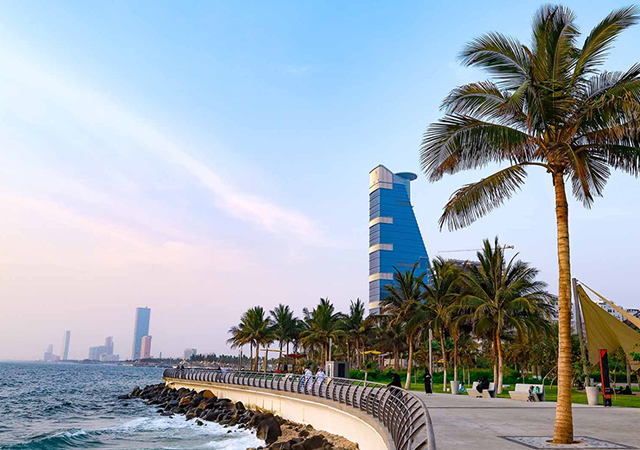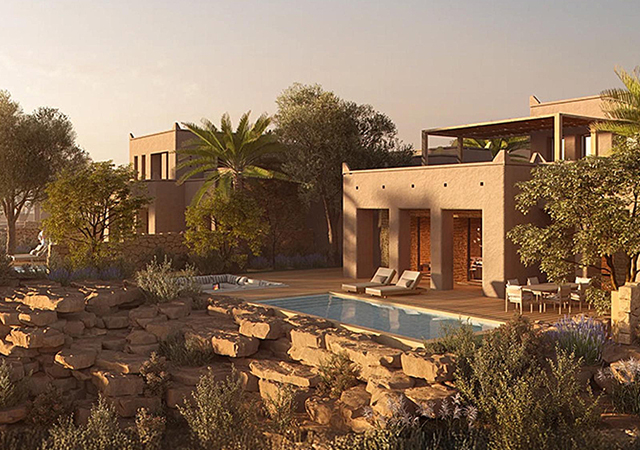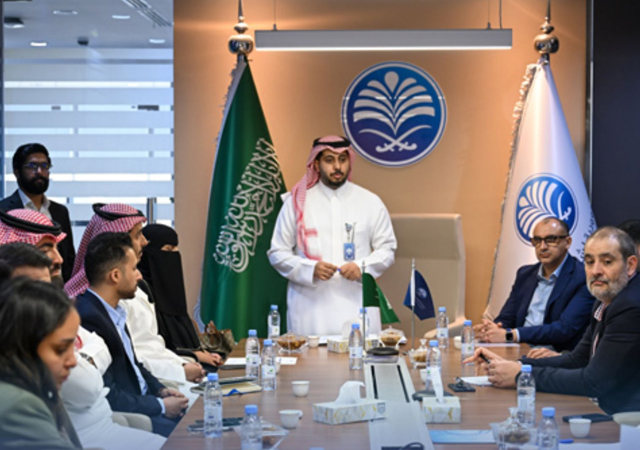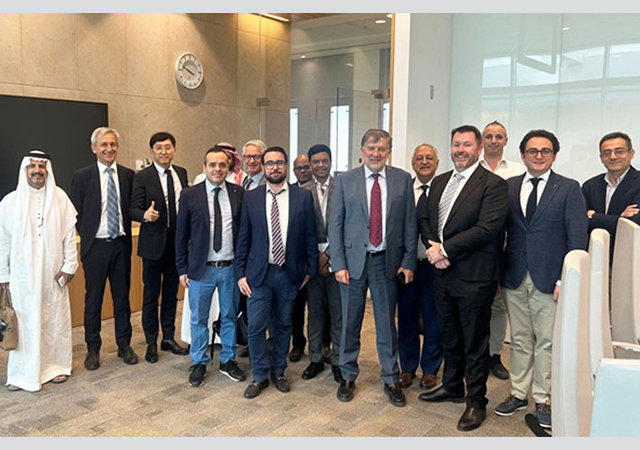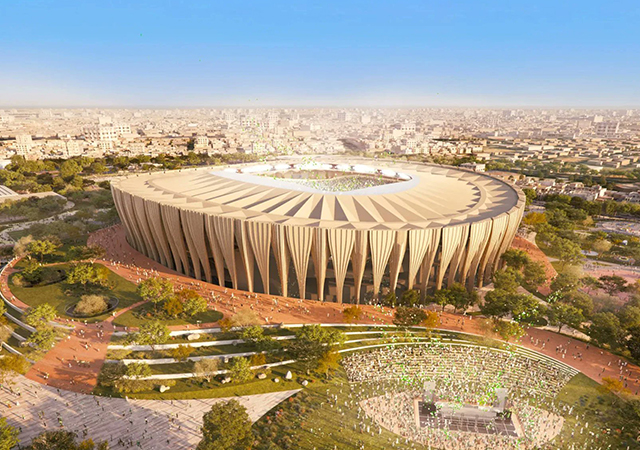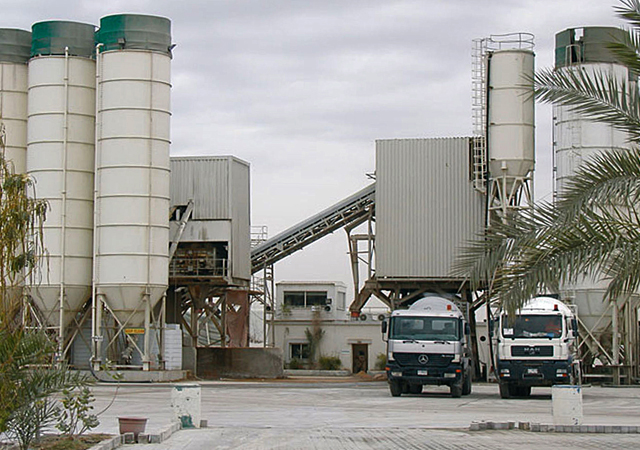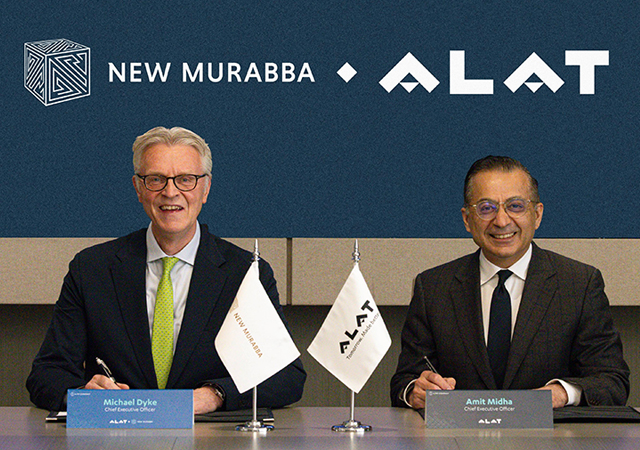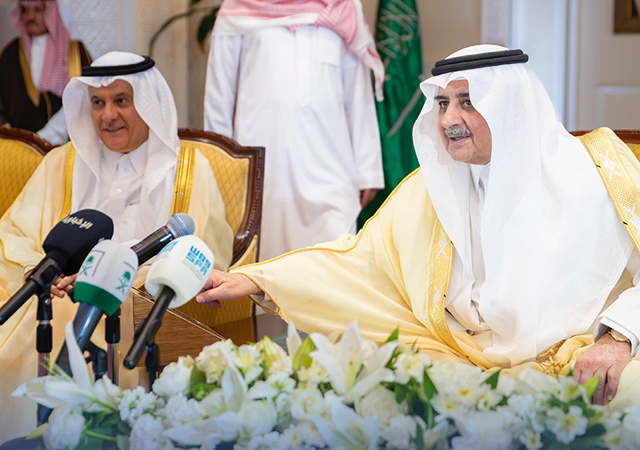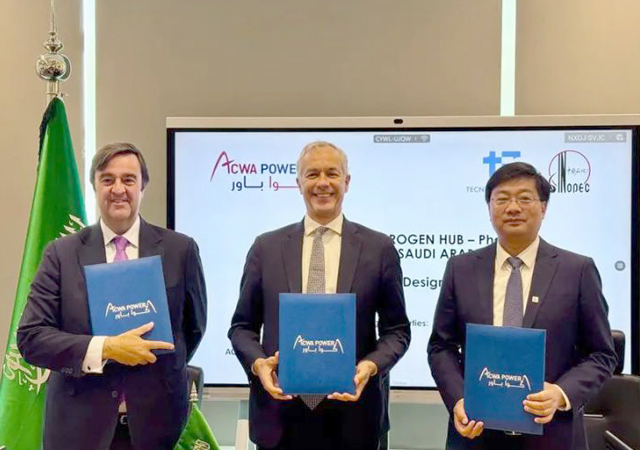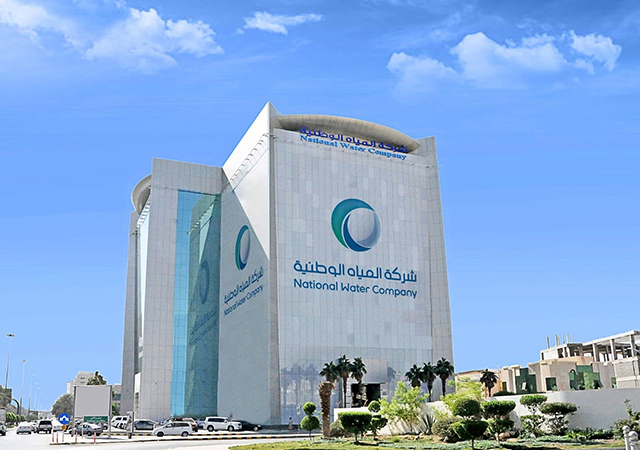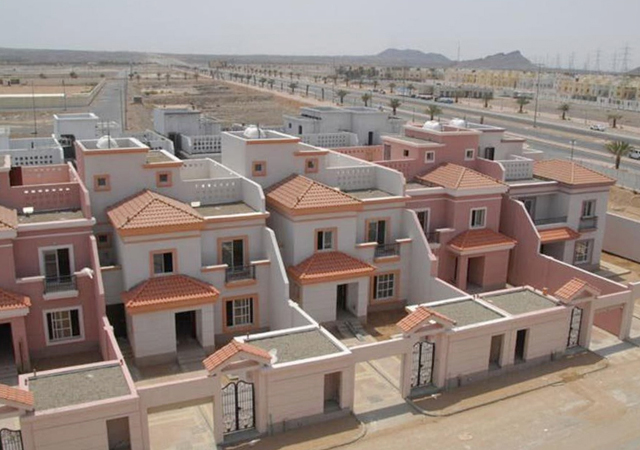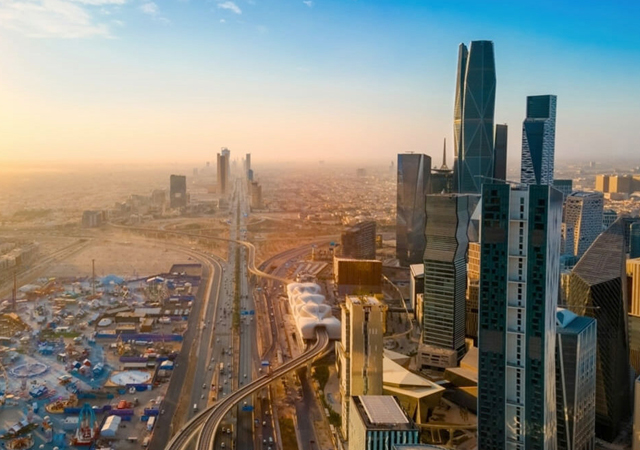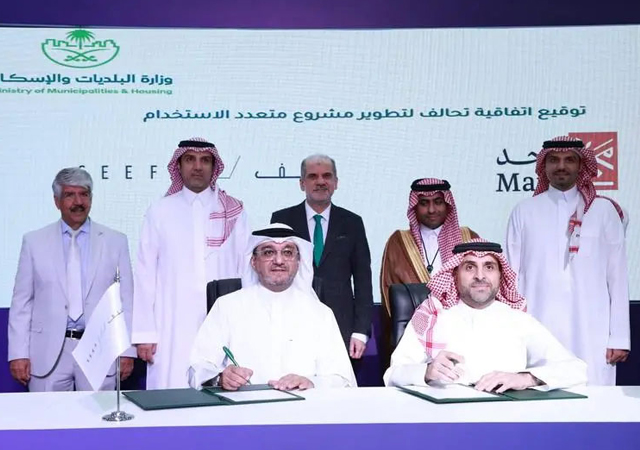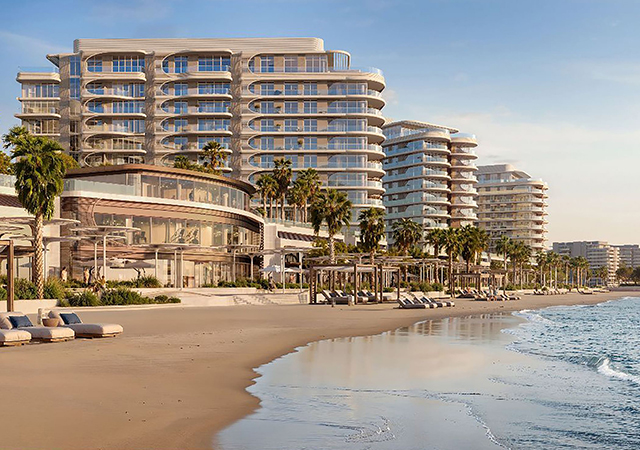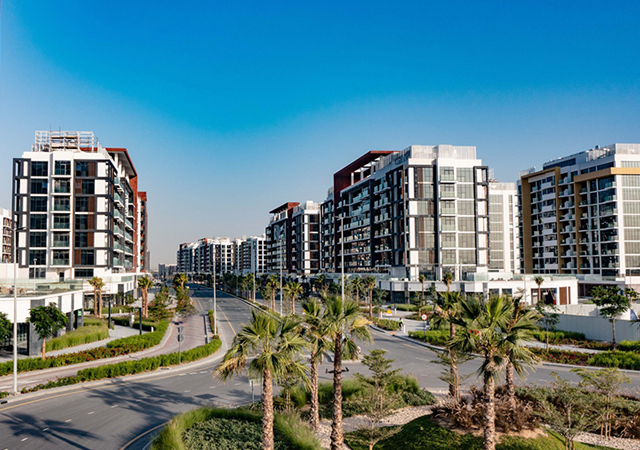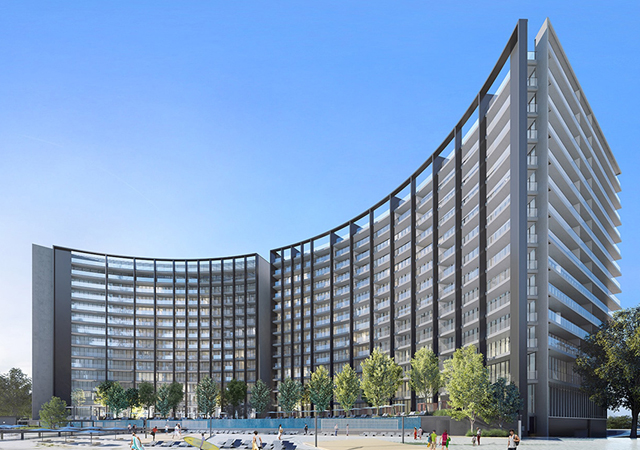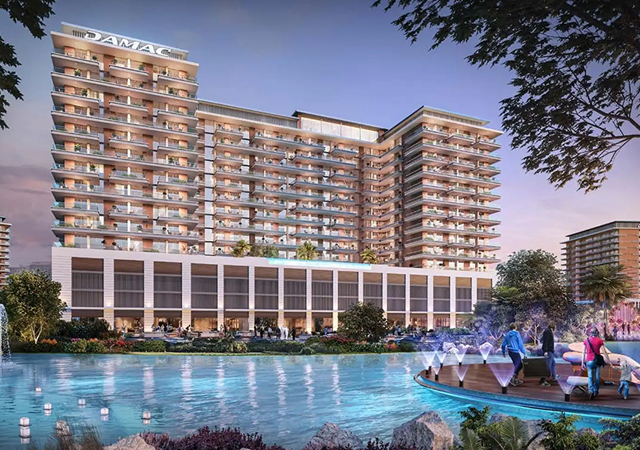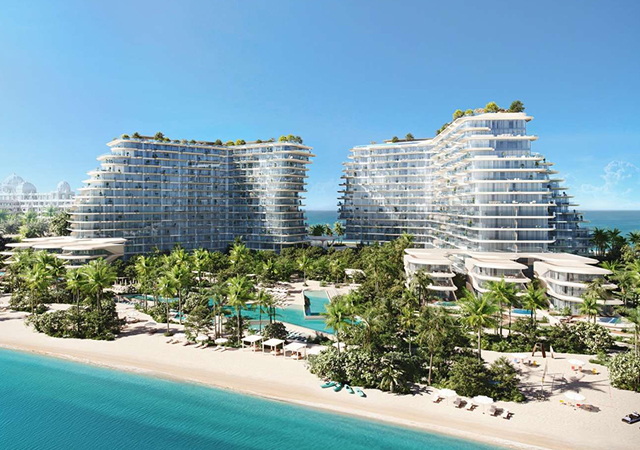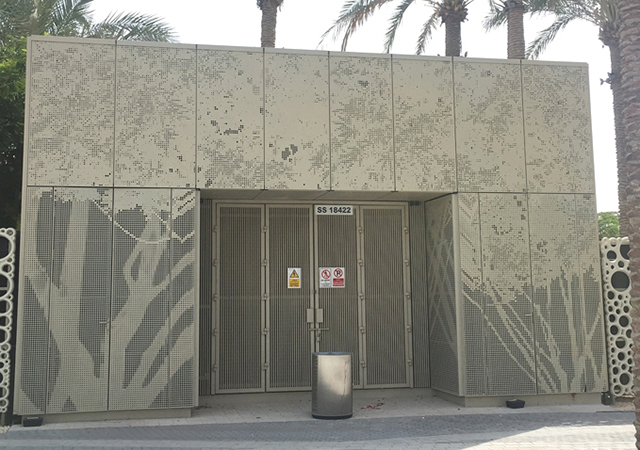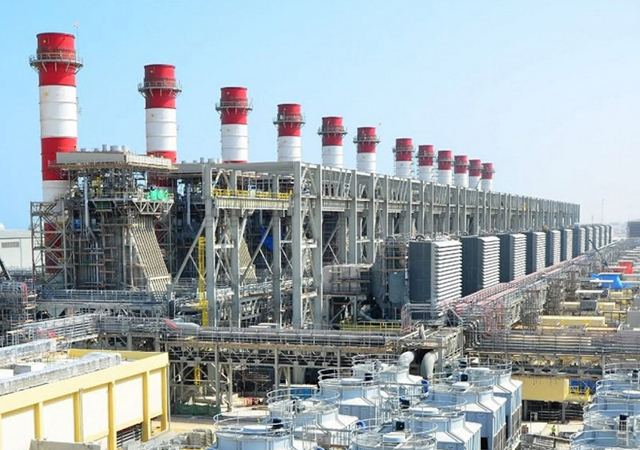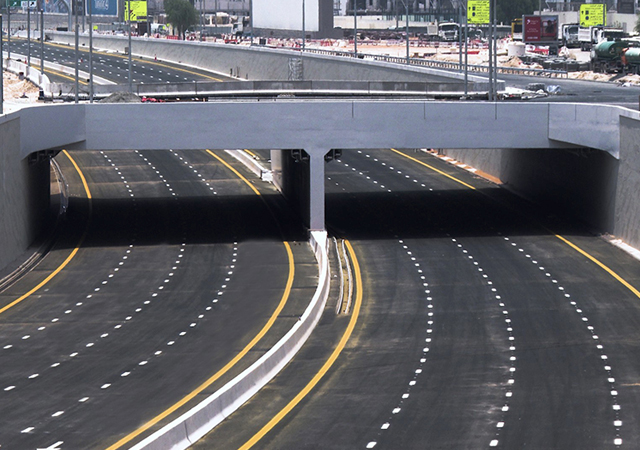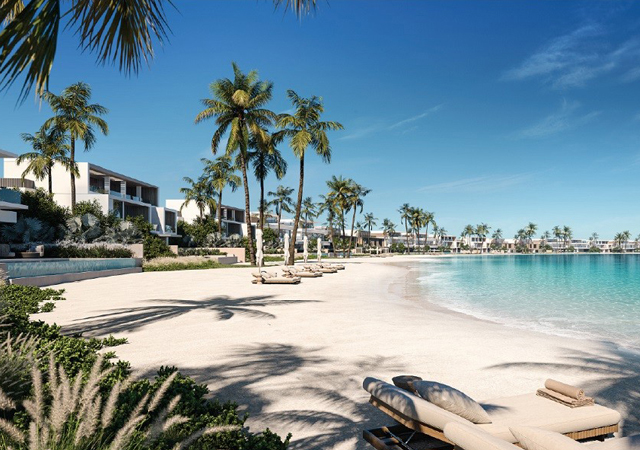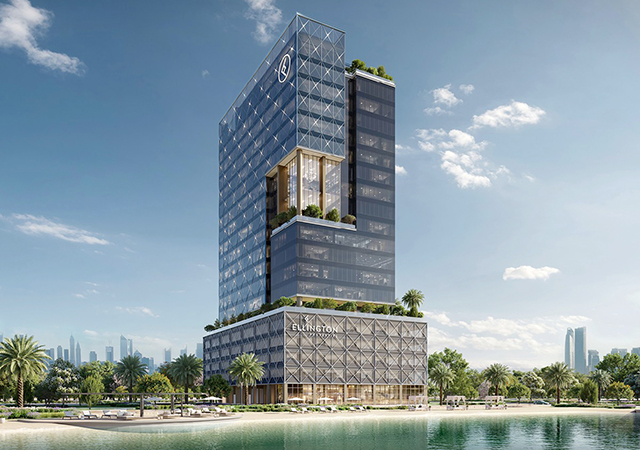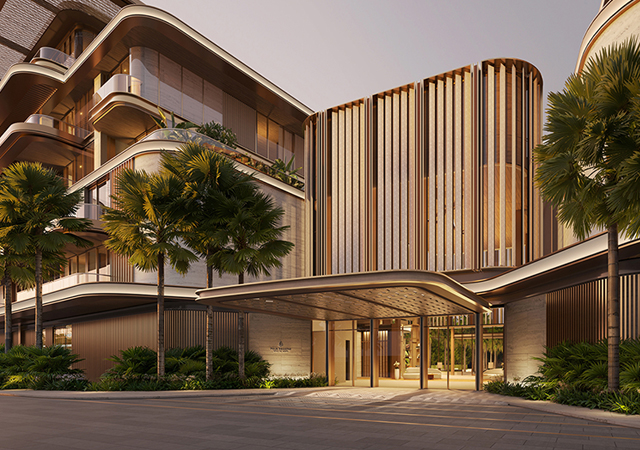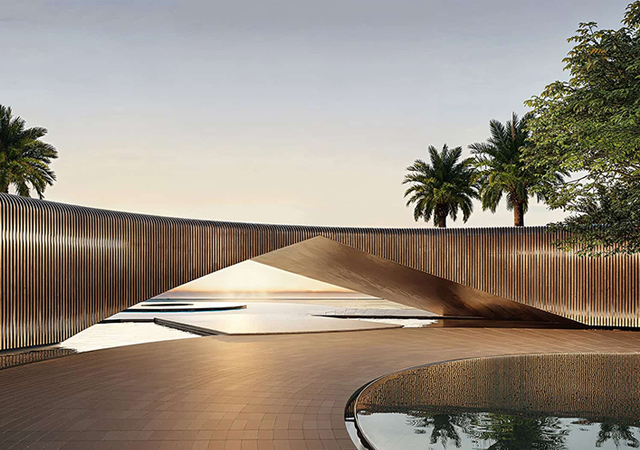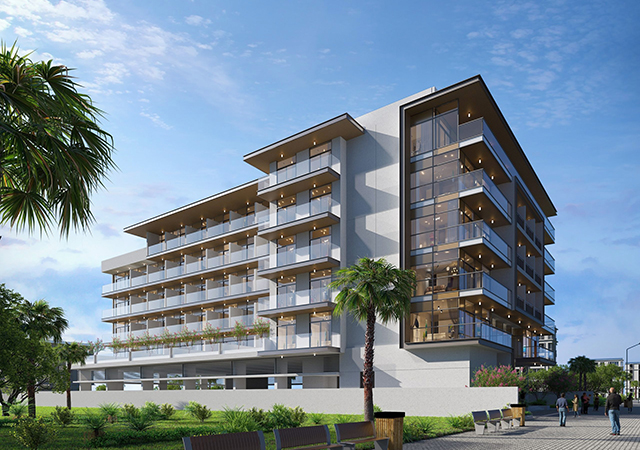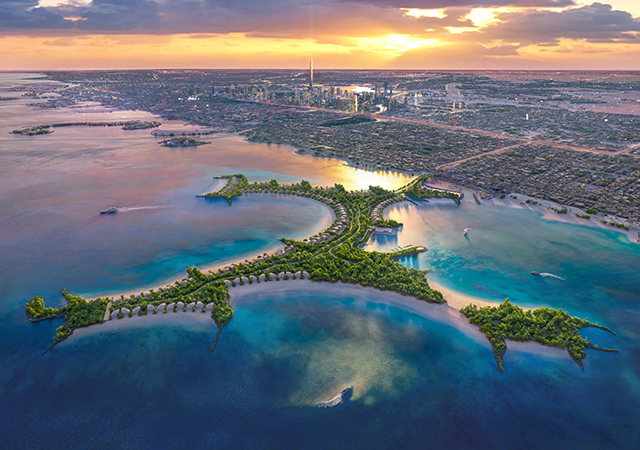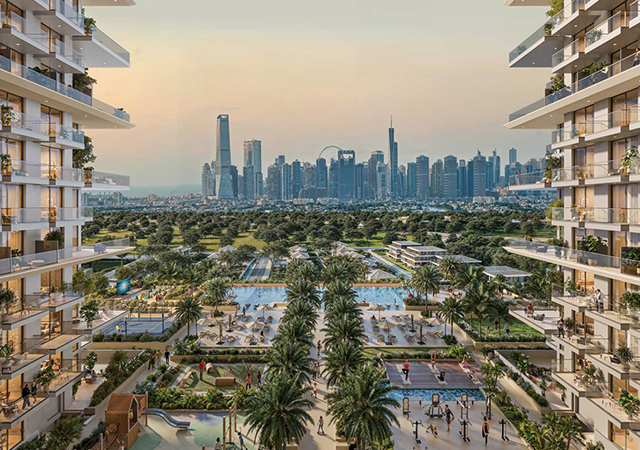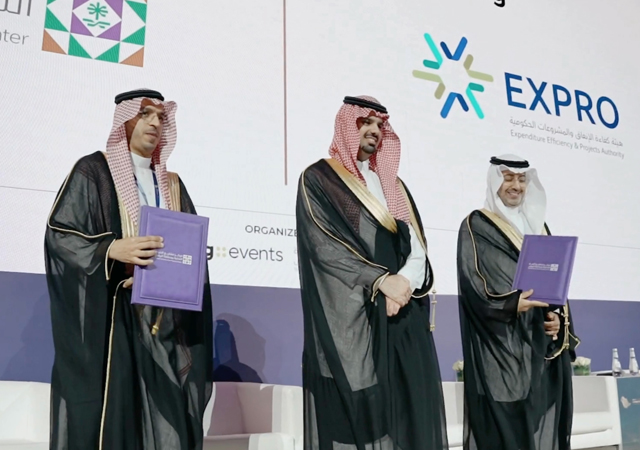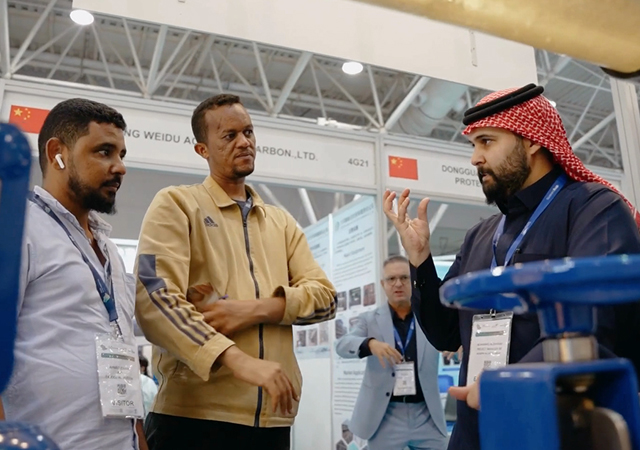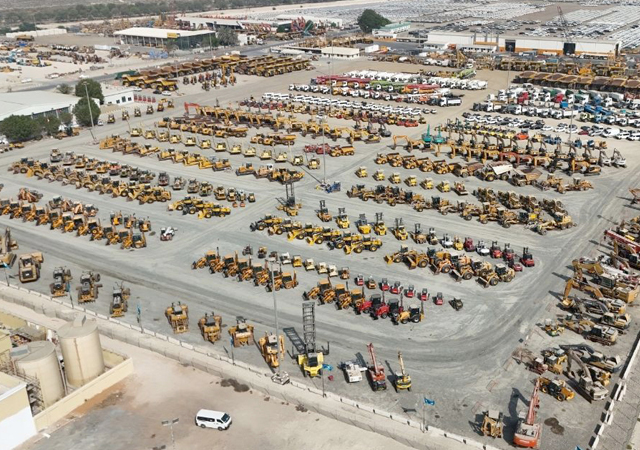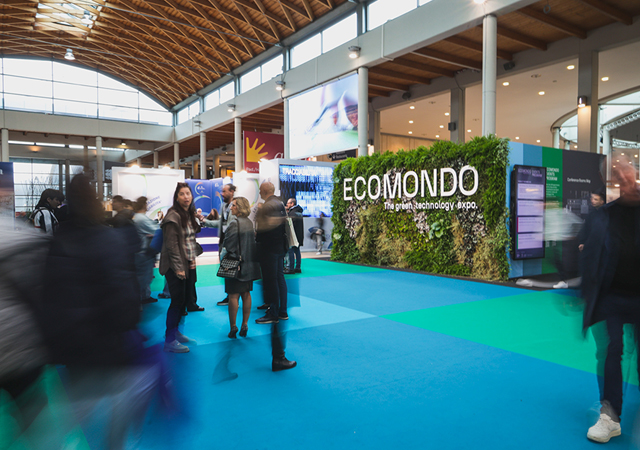
 Seven-span interchange ... to come up near the Bahrain Maps junction.
Seven-span interchange ... to come up near the Bahrain Maps junction.
Bahrain’s road transportation network is undergoing rapid growth and restructuring with around 200 road projects planned or currently under progress under a budget of BD44 million ($117.29 million) for 2007.
An additional 25 per cent is being injected into the roads budget for this year, giving the sector a BD55 million outlay to ensure that the Ministry of Works on course to achieving its strategic plan.
With Bahrain witnessing new developments that will enhance its position as a leading regional business centre, the Ministry of Works and Housing – spearheaded by Fahmi Al Jowder who is in charge of supervising and implementing the future road network of the kingdom – intends to use the opportunities created by a favourable investment climate to drive the kingdom’s infrastructure development forward, thus creating an environment conducive to further growth.
“A key focus for us is the road network, or rather the future road network which is moving ahead at a rapid pace within the framework of the ministry’s Strategic Roads Masterplan,” says Nayef Omar Al Kalali, undersecretary for Public Works Affairs at the ministry.
“Roads are a major lifeline in the development of the overall infrastructure and we are committed to enhancing the quality of life for all road-users in the region through the creation and maintenance of a safe, efficient and convenient kingdom wide road network,” he adds.
A key objective is to cater for increased growth in traffic patterns in the kingdom. Overall, the new roads and improvements to existing roads are expected to achieve an approximately 20 per cent reduction in traffic congestion by 2021. Hence traffic management measures become imperative.
“The Strategic Roads Masterplan, which will take us up to 2021, is well under way with around 200 projects currently in the various stages of planning and execution. A total of 50 roads are under design as of September last year, with 10 of these falling under the Roads Improvement Programme, seven under the Roads Maintenance Programme and about 30 under the New Roads Design Programme, with many more already under construction and maintenance.
“In 2007, we had a budget of BD44 million with regards to roads projects and management, and this will increase to BD55 million this year proving our full thrust approach. People can therefore appreciate that we are serious about giving our attention and using our current momentum to improving Bahrain’s road network.
“The responsibilities of this directorate include guaranteeing a high level of services for the construction of new roads, as well as ensuring optimal levels of maintenance for existing roads, always in accordance with international safety standards,” he says.
Kalali continues: “Our road system underpins everything that we do, from getting to work, to delivering freight, to visiting our friends and families – indeed every aspect of our lives is in some way influenced by the road network and traffic management. It is therefore crucial to have a strategic plan in place and not react in an ad hoc way to transport ‘bottlenecks’.”
“Everyone has an opinion on what we do. At times, it may seem that we are going backwards instead of forwards, but that is simply a reflection of the scale of work we have to do to get our roads into shape.”
Key challenges
According to Al Kalali, the kingdom has several challenges to overcome in terms of traffic management, which include:
• In the short space of seven years, the face of Bahrain has been resculpted into an even more modern landscape with the look and feel of a vibrant economy with much to offer within the Gulf countries and beyond;
• Increased economic growth has boosted Bahrain’s gross domestic product by 11.3 per cent in 2006, and Bahrainis and other expatriate residents are enjoying higher per capita incomes;
• This economic upsurge is providing higher disposable incomes. However, people are keen to spend this newfound wealth on consumer goods, including new cars, which have resulted in an annual increase in traffic at around nine per cent per year compared to only a three per cent increase in population.
But this is only one aspect of the story.
“Residential, business, educational and leisure centres are concentrated in and around the capital, Manama. The result is an endless stream of traffic often with long tailbacks at peak times. Frustrations run high and for many, no respite seems in sight,” says Al Kalali.
Another factor is public transport – or the lack of – with services and routes not serving the majority of people.
“We do not have an adequate service at present, but nor do we have a culture of public transport as is the norm in many other countries. Many people believe that public transport is not for them and prefer instead the sanctuary of their private vehicles. There are many trips that could easily be undertaken if we had an efficient public transport system and I am sure that people would warm to the idea with a little persuasion on our part.”
Masterplan
It is clear that tackling Bahrain’s growing traffic is not something that can be achieved overnight. However, through a combination of short, medium and long-term measures, as the tactics of a comprehensive and effective strategy, Bahrain’s road network is on the way to entering a new phase of efficiency and convenience.
The Strategic Roads Masterplan is quite literally on the move, and its three phases will take Bahrain’s road network up to 2021:
• Phase One consists of immediate improvements at a number of junctions including Bahrain Map, Isa Town roundabouts, Umm Al Hassam and Mina Salman;
• Phase Two will develop the road network up to 2011 and consists of linking East Isa Town with Jaber Al Ahmed Highway, Mina Salman industrial area with North Sitra, and improving Shaikh Jaber Al Ahmed Al-Sabah Highway in preparation for the Bahrain-Qatar Causeway; and
• Phase Three will further develop the road network up to 2021 and includes improving Al Fateh Road and surrounding areas such as Juffair as well as nearby investment projects.
“In this plan, a series of measures each contribute in a different yet complementary way to significantly reducing traffic congestion. The plan is subject to regular and stringent reviews to ensure the progress and results are on track,” Al Kalali points out.
Stretching across every governorate, a number of current and future road works being undertaken by the ministry aim to accommodate growing vehicle traffic and support the ongoing urban and economic development in Bahrain.
Some of the major projects which are doing just that are the Shaikh Khalifa Bin Salman Highway connecting central Manama with several new towns, the University of Bahrain and the Sakhir Circuit at a total initial budget of more than BD15 million. King Hamad Highway, which is substantially complete – at a cost of nearly BD4 million is connecting existing villages and new developments in the southeast to the south of the island.
The much-needed Sitra Causeway reconstruction comes at an initial cost of almost BD4 million and will create a much more effective link between Bahrain and Sitra islands, with its thriving industrial zones, as well connecting to existing and new centres of population in the south east.
Projects which are currently being prepared include the Bahrain Map Interchange that will go a long way to relieving congestion at this busy intersection.
An example of roads that play a key part in supporting the development of new commercial centres, and stimulate the economy, is the City Centre interchange connecting the City Centre mall to the road network with an initial budget of nearly BD1 million; and providing the same access to a new residential development is the Lulu Island bridge with an initial budget of more than BD2.5 million.
Existing population centres are also included in the plan with the tender for the Isa Town Gate Interchange having been awarded at an initial budget of BD41 million, and the North Manama Access Causeway under way at an initial cost of BD6 million.
In addition, the Roads Construction Section is supervising construction of 34 tendered road projects and one term contract with a total value of BD30 million. Another 28 projects have been tendered or are scheduled for tender shortly, with 13 of these expected to begin in the next two months.
The ministry also gives particular importance to village road improvement projects, with the overall initiative having a dedicated budget of BD2 million. So far, the designs for roads in the Galali, Buquwaah, Sehla and Karbabad villages have been completed. An additional budget of almost BD 4 million has been allocated for opening of roads and BD3 million for road improvement.
Smart land-use decisions
As there is a limit to how many new roads that can be built, one has to look further for solutions to traffic management on a large scale.
“If we all need to get from the same point A to the same point B, it is obvious that we will have congestion – no matter how many roads we build,” points out Al Kalali. “We have, therefore, decided to employ smart land-use decisions as a medium to long-term strategy that will contribute a further 30 per cent reduction in traffic congestion.”
This decentralisation initiative involves extensive coordination between the Ministry and other government bodies in a national context to encourage existing and new businesses, schools and housing to relocate or be built away from high-density areas.
Reliable public transport
Bahrain’s residents have never fully enjoyed the benefits of an efficient and comprehensive integrated public transport system. That is set to change, as the strategic plan is to reduce congestion by a staggering 25 per cent due to a rapid and reliable public transport initiative. The undersecretary comments: “We have to adopt public transport – we have no choice in the matter. Considering the concentration and density of population that we have, it makes sense to encourage people onto public transport. Our challenge will be to convince them to get into the public transport habit. As such, we are working on a series of measures to overcome a learned reluctance to do so as an adjunct to our plan to revamp and augment the existing public transport system. We are considering measures in line with other major cities to deter the public from bringing their cars into congested areas.”
Traffic management systems
The latest technology has been selected to allow the monitoring of traffic and the use of preventive measures to minimise blockages in case of increased volume or unforeseen incidents. “Of course, all traffic must be managed, but more than that, it must be managed intelligently. By that I mean using the available technology to help keep things flowing in order to minimise delays. This aim is to also improve road safety as we can reduce drivers’ understandable frustration at long delays, which can lead to risky behaviour on our roads. We have all seen it and experienced it,” points out Al Kalali.
A ‘Scoot’ traffic signal system – already proven to be a world leader in urban traffic control, has been installed in a number of different high traffic areas. It has immeasurable value in coordinating the smooth flow of traffic by reducing waiting times at junctions.
Traffic signals can be synchronised, thus allowing maximum traffic flow according to a programmed algorithm.
Scoot also contributes vital traffic movement data from major highways and roads for use in traffic censuses. The ministry had previously commissioned an independent report and, according to the results, traffic signals proved to be 30 per cent more efficient than roundabouts in reducing congestion in high-traffic-volume areas.
Another important benefit of the traffic management and intelligent transport systems is that by using traffic modelling techniques, traffic movements can be simulated on a virtual road network, both existing and proposed.
“It is an amazing tool as by keying in various scenarios, the programme highlights the improvements necessary to bring the network up to an acceptable standard,” he says.
The future
The tasks ahead are complex and varied, and the budgets commensurate with the scale of the Strategic Roads Masterplan, as the ministry harnesses the opportunities through a series of long-term strategic plans which are already reaping the benefits.
“The ministry has instigated a management development plan showing its firm commitment to change as the way forward. Our intention is to hone the ministry’s functioning to ensure the provision of appropriate and alternative options for service delivery into the future. Within a few years, Bahrain will take its place among other progressive countries who boast well-managed traffic systems because we are determined to deliver on our promise of providing an efficient and adequate road network for all road users to enjoy,” concludes Al Kalali.



